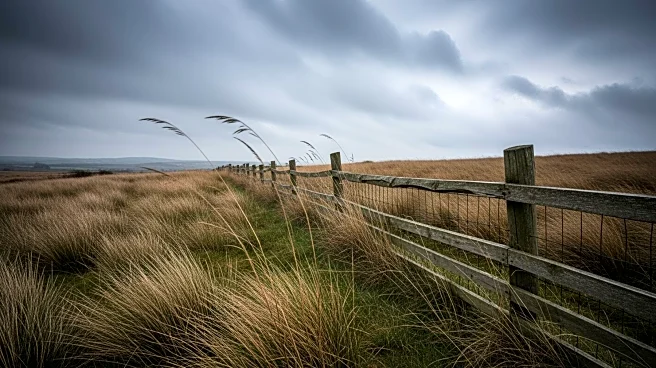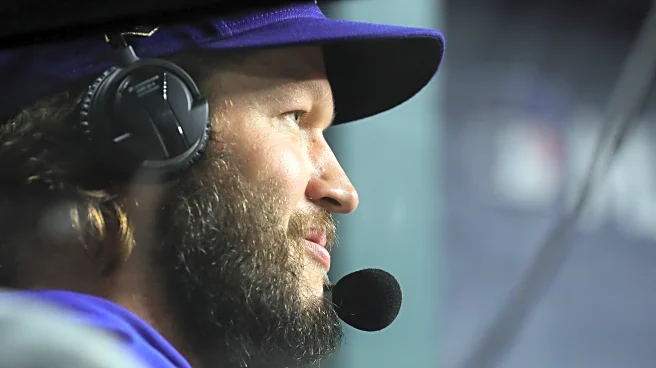What's Happening?
Warner Bros has released the official trailer for 'Wuthering Heights,' a film adaptation directed by Emerald Fennell, starring Margot Robbie and Jacob Elordi. The movie, set to premiere on Valentine's
Day 2026, is based on Emily Brontë's 1847 novel, which explores the complex relationships between two families and their foster son, Heathcliff. The trailer highlights the intense and forbidden romance between Catherine Earnshaw, played by Robbie, and Heathcliff, portrayed by Elordi. The film promises a visually stunning experience, with Charli XCX's song 'Chains of Love' featured in the trailer.
Why It's Important?
The adaptation of 'Wuthering Heights' is significant as it brings a classic literary work to a modern audience, potentially attracting new fans to Brontë's story. The casting of Margot Robbie and Jacob Elordi adds star power, likely increasing interest and box office potential. The film's release around Valentine's Day positions it as a romantic offering, appealing to audiences seeking dramatic love stories. Additionally, the film's production by MRC and distribution by Warner Bros highlights the collaboration between major industry players, which could influence future adaptations of classic literature.
What's Next?
The film is set to hit U.S. theaters on February 13, 2026, and anticipation is building as audiences look forward to seeing how Fennell's adaptation will interpret the novel's themes of love, class, and revenge. The casting choices and visual style may spark discussions on the portrayal of classic characters and the adaptation's fidelity to the source material. As the release date approaches, marketing efforts will likely intensify, with trailers, interviews, and promotional events designed to maximize audience engagement.
Beyond the Headlines
Emerald Fennell's decision to cast Jacob Elordi as Heathcliff, a character described in the novel with racialized features, has sparked conversations about representation and authenticity in adaptations. This choice may lead to broader discussions on diversity in casting and the responsibilities of filmmakers in honoring the cultural and historical contexts of literary works. The film's approach to these themes could influence future adaptations and the industry's handling of similar issues.










